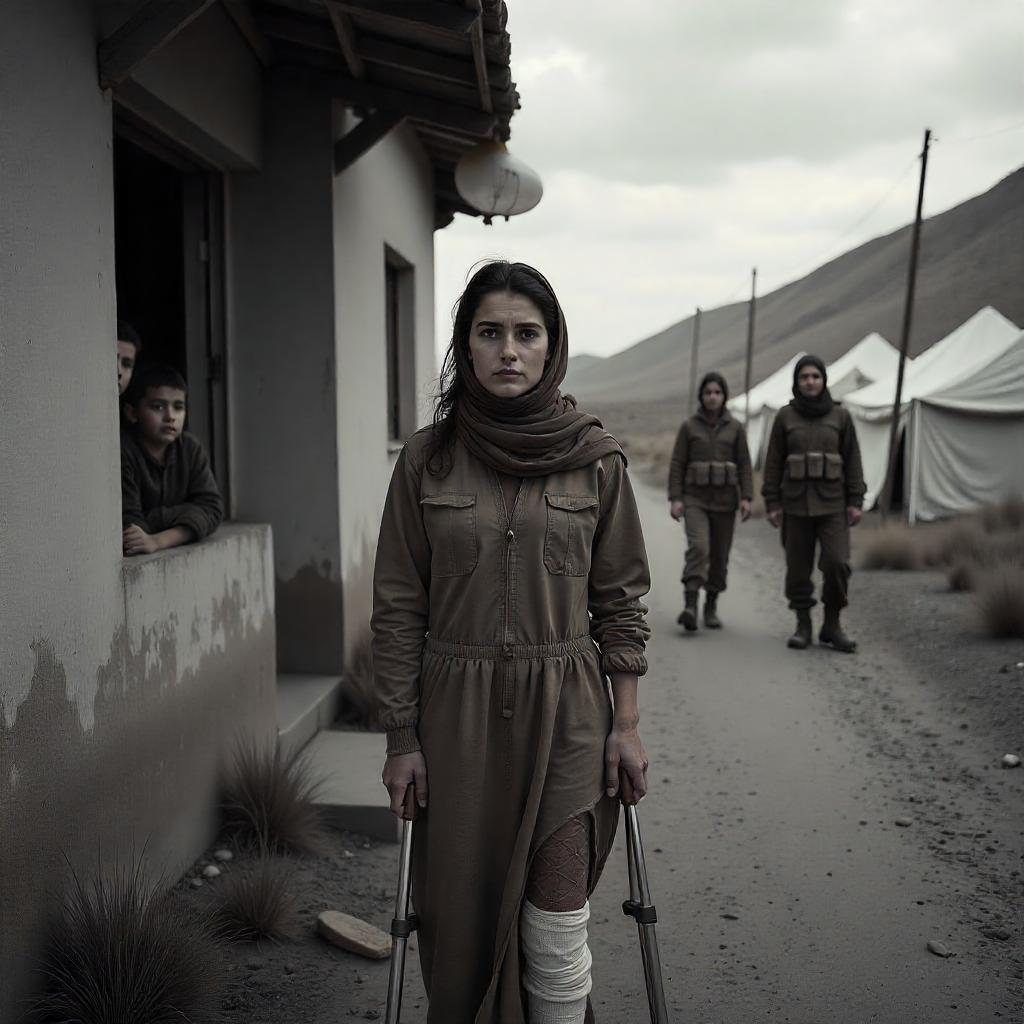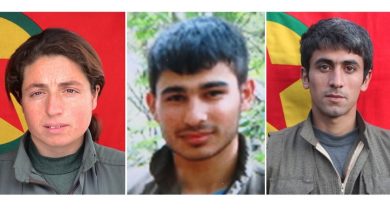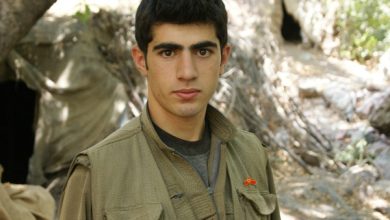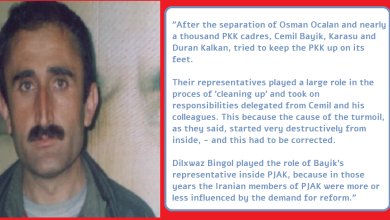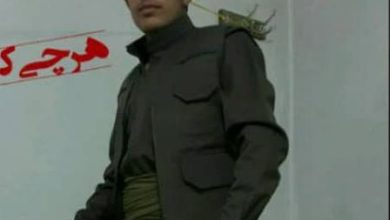Mojdeh Faramarzi: It all started when, after years of struggle, I decided to get a divorce
Divorce, as a social phenomenon, not only affects individuals’ lives but also has widespread consequences for family structure and society. In traditional societies, the institution of family is recognized as a fundamental pillar of individuals’ social and cultural identity. Within this context, early marriage and social pressures stemming from cultural expectations can lead to problems in marital relationships. Mojdeh Faramarzi (daughter of Nasser, born in 1991 in Marivan and a former member of the armed Democratic group) is an example of these realities, grappling with family problems and marital disputes. Having married at a young age and subsequently faced numerous challenges, she eventually divorced her husband. This separation will have profound and lasting effects not only on her but also on her children, Bahareh and Muhammad. Furthermore, due to family problems and in an attempt to escape her situation, Mojdeh gravitated towards illegal and paramilitary groups. Her decision reflects an identity crisis and a search for new ways to find meaning and purpose in life. In this interview, we will try to examine various aspects of Mojdeh’s life, including the social impacts of divorce, the role of family and society in shaping individual identity, and the consequences of joining armed groups.
Question: Please tell us about your life before joining the PDK-I group.
Mojdeh Faramarzi: My name is Mojdeh Faramarzi, born in March 1992, and I am from Marivan. I grew up in the Tapeh Mousk neighborhood, where most families are traditional, and life revolves around customs and people’s opinions. I only went to elementary school and got married very early, when I was about 15 years old. My husband, Firooz Niknafs, was a strict man. Our life was full of disagreements and fights from the beginning, but when we had children, I tried to endure it. Now I have two children: Bahareh, who is 14, and Muhammad, who is 7. Early marriage, not attending school and completing my education, and so on, were among my most significant problems, which manifested as conflicts with my ex-husband.
Question: What caused your life to deviate from the normal path?
Mojdeh Faramarzi: It all started when, after years of struggle, I decided to get a divorce. Separating from my husband was not easy at all. Family pressure, worries about the children’s future, and people’s judgment left me feeling confused. I felt like no one understood me. But continuing the marriage had become impossible for me, and I had no choice but to divorce. It was in this situation that an acquaintance introduced me to a Telegram channel that talked about “Kurdish women’s rights” and “freedom seeking.” I was also unhappy with my marriage and early marriage. Initially, I became curious and gradually connected with several members of the PDK-I group online. This initial contact and acquaintance deceived me and changed my life. After joining the PDK-I, everything changed.
Question: How did your online communications lead to you leaving the country?
Mojdeh Faramarzi: The people who spoke with me, especially a woman named “Awat,” introduced herself as a women’s rights activist. She spoke of the pains of Kurdish women and how we must fight for our rights. I also had my own grievances and was tired of my life – tired of people’s harsh looks and my children’s uncertain future. Awat said that I could join them, a place where “being a woman is not a flaw.” She said if I came to the Kurdistan Region, a new opportunity would be provided for me, and they might even help me go to Europe. In February 2025, I crossed the border at night with the help of a smuggler and entered Iraqi territory. None of my family knew, and I only had a small bag with me and many questions in my mind. I really had to go there. Life with my ex-husband was a complete failure. I had constantly been blamed. Awat also made attractive promises.
Question: What happened after you arrived? What were the conditions like there?
Mojdeh Faramarzi: Contrary to my initial perceptions from online conversations and the colorful propaganda about armed groups, the reality there was completely different. When I entered that environment, I realized that the real world is very cold and ruthless. It was a dry place, full of forced order and fear, where nothing was according to your own wishes. Everything I imagined about freedom and equality quickly crumbled under the psychological and physical pressures. Upon entering the camp, they told me that I had to undergo training first. This sentence initially seemed appealing to me, but I soon realized that what they meant by training was a difficult and grueling process. I put on a military uniform, and the harsh physical training began. Day after day under the scorching sun and night after night in the bitter cold, I had to perform exercises that were beyond my physical and mental capacity. I had neither a fit body nor the mental readiness to endure these conditions.
During one of the exercises, while climbing the heights, I suddenly lost my balance and fell from a height. My leg was injured, and that incident became a turning point for me. After that accident, I was in pain even when standing, let alone running and continuing the training. This injury not only affected my body but also broke my spirit. At that moment, I realized that the promises they had made to me were just tricks to lure me there.
In that environment, communication with the outside world was completely forbidden. There was no way to contact my family or friends. Normal living facilities that every human should have were rationed there. There was no news of enough food, nor basic amenities for a comfortable life. Especially for me, who now needed medical attention, the conditions became much more difficult. There was no doctor or medical facilities for my injured leg at all. The only thing I heard were slogans of freedom and equality, while I was struggling in deep pain. This experience made me think deeply about the concept of freedom. Is freedom really dependent on joining such groups? Is all this pain and suffering really worth it? Ultimately, I realized that what is advertised on the outside is more of an illusion than a tangible reality. No one there cared about us, and we were just tools to advance the goals of others.
Question: How did the group treat you after your injury?
Mojdeh Faramarzi: Unfortunately, there was no proper care. They only gave me a simple bandage once, and after that, I was mostly excused from hard labor, but instead, I had to do service work. I felt like there was no sympathy there. There was no freedom and no future. Phones were forbidden, there was no internet, and communication with the outside world was zero. I really felt like a prisoner. Several times I wanted to say that I didn’t want to continue, but they threatened me that if I left, they would use everything against me. I had been harmed within the PDK-I; however, no one thought about my treatment and the uncertain future of an injured member. The service work was also demanding, but the group leaders ignored it.
Question: Did your family try to find you?
Mojdeh Faramarzi: After my absence became prolonged, my family found out through acquaintances that I had gone to the armed groups. My father, with great difficulty, managed to get news through a mediator. When they found out that I was injured, they became even more worried. After a while, the mediators intervened again to try to obtain the group’s consent for my return. Eventually, perhaps because they realized I was no longer useful to them or because they were under pressure, they agreed to let me go.
Question: What path did you take after leaving the group?
Mojdeh Faramarzi: I stayed with a distant acquaintance in Sulaymaniyah for a while. I had no money and no documents to stay. I decided to return to Iran. With a thousand fears and anxieties, I finally returned to Marivan. Seeing my children again was like being born again for me. Now I am trying to have a simple but peaceful life. My right leg still bothers me, but at least I walk freely. I have a phone, I see my children, and the threat of death does not loom over me.
Question: If you have a message for women in similar situations, what would you say?
Mojdeh Faramarzi: I would tell them that no one can show the path to happiness with beautiful words on the internet. We women in this region have always been victims of limited choices. But the solution is not to flee towards armed groups; there, we are only given another role of being a victim. We must fight to build a life, but not with weapons… but with awareness, by standing on our own feet, and by striving for education and independence.

